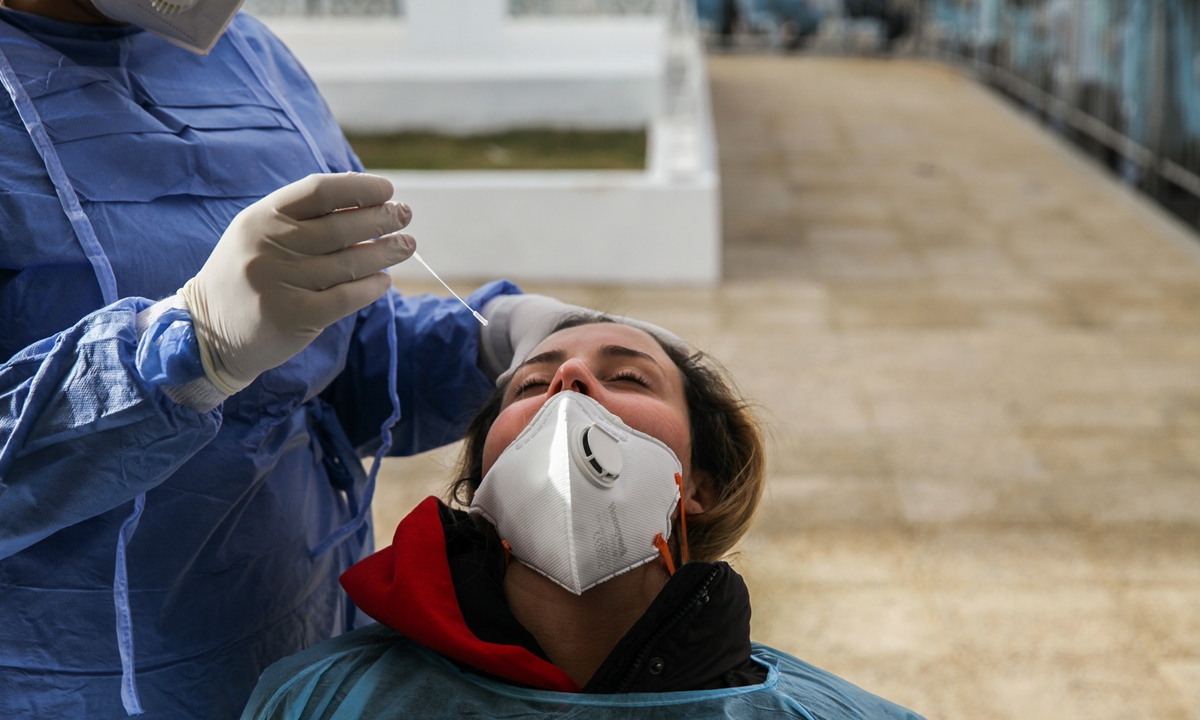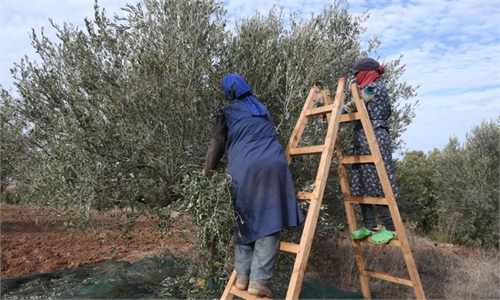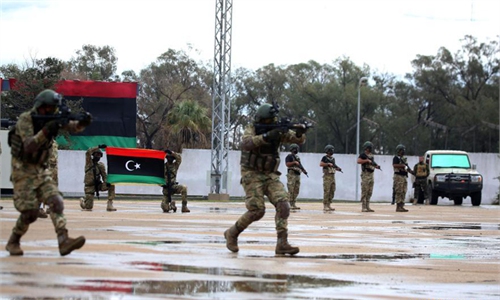When Nadia told police about her husband's violence during lockdown in Tunisia, she nearly lost custody of her daughter, illustrating a chasm between a gender law and its enforcement.
Adopted in 2017, the celebrated law greatly expanded the scope of punishable violence against women and in theory provides wide-ranging support to victims, making the country a pathfinder among regional peers. But getting justice remains a battle due to waning political will and scant funding.

"He left for several months every year to work abroad, so I preferred to do nothing" about the abuse, Nadia said. But things became intolerable during a three-month coronavirus lockdown.
"He was stuck in the house, stressed. He drank a lot," Nadia said.
"One day my daughter told me of inappropriate advances" of a sexual nature.
Nadia immediately called the police, who summoned her a few days later.
She was one among many Tunisian women who suffered a surge in violence during the March to June 2020 lockdown, as reported cases spiked five-fold, according to authorities. But Nadia says she was completely blindsided by what happened next.
While her initial interaction with the police was positive, things quickly turned sour. Her husband was able to afford a lawyer, while she is destitute and fears he may have bribed the police or magistrates.
The police requested she put together an evidence file herself. After several weeks without any progress and by now desperate and terrified of losing custody of her daughter, Nadia turned to a women's group for help.
The group linked her up with a lawyer who found that the police station had not even sent her evidence to court.
The file was then sent to a second magistrate and a few days later her husband was finally arrested.
Adopted in 2017, the celebrated law greatly expanded the scope of punishable violence against women and in theory provides wide-ranging support to victims, making the country a pathfinder among regional peers. But getting justice remains a battle due to waning political will and scant funding.

A medic collects samples from a woman for COVID-19 tests in the street of Ariana governorate which is located 6 km from the capital Tunis, on January 8, 2021 during a Mass COVID-19 Testing which has been launched by the local authorities in bid to contain and slow down the spread of coronavirus pandemic. Photo: VCG
For several years, Nadia, in her 40s, weathered mistreatment at the hands of her husband. With no income of her own, she felt she couldn't complain."He left for several months every year to work abroad, so I preferred to do nothing" about the abuse, Nadia said. But things became intolerable during a three-month coronavirus lockdown.
"He was stuck in the house, stressed. He drank a lot," Nadia said.
"One day my daughter told me of inappropriate advances" of a sexual nature.
Nadia immediately called the police, who summoned her a few days later.
She was one among many Tunisian women who suffered a surge in violence during the March to June 2020 lockdown, as reported cases spiked five-fold, according to authorities. But Nadia says she was completely blindsided by what happened next.
While her initial interaction with the police was positive, things quickly turned sour. Her husband was able to afford a lawyer, while she is destitute and fears he may have bribed the police or magistrates.
The police requested she put together an evidence file herself. After several weeks without any progress and by now desperate and terrified of losing custody of her daughter, Nadia turned to a women's group for help.
The group linked her up with a lawyer who found that the police station had not even sent her evidence to court.
The file was then sent to a second magistrate and a few days later her husband was finally arrested.



